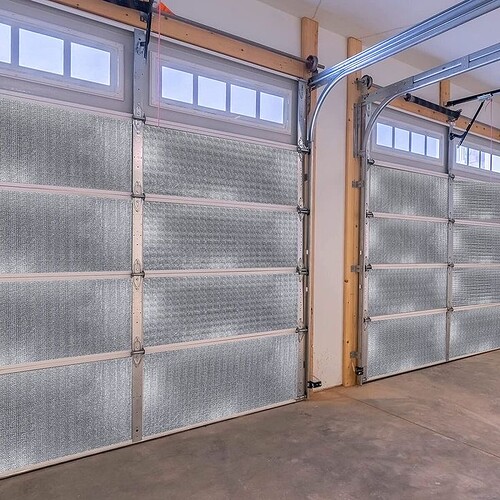As energy costs continue to rise, homeowners are looking for ways to reduce their energy consumption and save money on their utility bills. One often-overlooked area of the home is the garage door. Insulating your garage door can be a simple and effective way to reduce energy loss and save money. But is it a must-have for saving energy?
Benefits of Insulating Your Garage Door
Insulating your garage door can provide several benefits:
- Reduced Energy Loss: A well-insulated garage door can help reduce heat transfer between the garage and the outdoors, keeping your garage warmer in the winter and cooler in the summer.
- Lower Energy Bills: By reducing energy loss, you can lower your energy bills and save money on your utility costs.
- Increased Comfort: A insulated garage door can help maintain a consistent temperature in your garage, making it more comfortable to work or spend time in.
- Reduced Noise: Insulation can also help reduce noise pollution from the garage, making it a more peaceful space.
Types of Garage Door Insulation
There are several types of garage door insulation available:
- Foam Board Insulation: A popular choice for garage doors, foam board insulation is easy to install and provides excellent thermal resistance.
- Reflective Insulation: This type of insulation is designed to reflect radiant heat rather than absorb it, making it a good choice for garages with high ceilings.
- Garage Door Insulation Kits: These kits usually include a pre-cut insulation panel and a retention system to hold it in place.
Factors to Consider
Before insulating your garage door, consider the following factors:
- Climate: If you live in an area with mild winters and cool summers, you may not need to insulate your garage door.
- Garage Usage: If you use your garage as a workshop or living space, insulation can help maintain a comfortable temperature.
- Door Type: Insulation may not be suitable for all garage door types, such as wooden or glass doors.
DIY or Hire a Professional?
Insulating your garage door can be a DIY-friendly project, but it may require some technical expertise. If you’re not comfortable with the installation process, consider hiring a professional.
Conclusion
Insulating your garage door can be a worthwhile investment for homeowners looking to reduce energy loss and save money on their utility bills. While it may not be a must-have for every homeowner, it’s definitely worth considering if you live in an area with extreme temperatures or use your garage as a living or working space. By choosing the right type of insulation and considering your specific needs, you can enjoy a more energy-efficient and comfortable garage.
